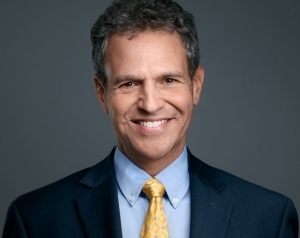In July 2011, shortly after Canadian voters handed the Conservatives a majority government, Prime Minister Stephen Harper observed that “since becoming prime minister…the thing that’s probably struck me the most in terms of my previous expectations—I don’t even know what my expectations were—is not just how important foreign affairs/foreign relations is, but in fact that it’s become almost everything.”
Given this interesting admission, you might expect foreign policy to feature prominently in the government’s agenda. But you would be wrong. While Mr. Harper may acknowledge the importance of foreign policy, the recent Speech from the Throne suggests that he is still not treating it as important.
Apart from its ambitious trade agenda, which is finally beginning to pay dividends with the CETA, Canada’s foreign policy has been reduced to an idiosyncratic handful of narrow issues.
Yes, the Throne Speech. It seems more like months—and not just two weeks—since parliamentarians returned to Ottawa. Mr. Harper, himself, helped to turn attention away from the speech by showing up the next day in Brussels to announce the Canada-EU Comprehensive Trade and Economic Agreement. The CETA story, however, lasted only a day or so. It was soon overshadowed by the Senate expense scandal that has dominated the news ever since.
Nevertheless, the Throne Speech offers the best glimpse of the government’s policy intentions for the new session of Parliament. Ministers press for their priorities to be included in the address, and departmental officials then use specific language in the Throne Speech to portray their respective proposals as central to the government’s agenda (and thus deserving of priority treatment by other departments and central agencies).
If you think about the speech in those terms—as a broad agenda, a reflection of which ministers succeeded in pushing their priority items into the speech, and a means by which departments can subsequently move their issues forward—one thing that stood out was the near-absence of foreign policy in the text. It gave the foreign minister and his department almost nothing to use as a hook for policy.
True, the speech highlighted international trade, including the CETA. However, with the exception of a promise to launch a new plan “to assist Canadian businesses as they expand abroad,” this section of the speech essentially reported on Canada’s ongoing trade negotiations and offered little that was new.
The main foreign affairs portion of the speech, near the end of the address, was very thin gruel. It began with a paragraph on the moral rectitude and steadfastness of Canada as an international actor:
Canada stands for what is right and good in the world. This is the true character of Canadians—honourable in our dealings, faithful to our commitments, loyal to our friends. Confident partners, courageous warriors and compassionate neighbours.
Fanfare complete, the speech then turned to the first specific foreign policy item.
Quiz yourself: which issue warranted top billing? Was it the need to improve Canada’s relations with the U.S. (a perennial priority for Ottawa)? Was it a pledge to work with other countries to strengthen the global system of rules and institutions during a period of rapid change and turbulence? Or was it a promise to address the issue that Canadians (and the citizens of many other countries) regard as the single greatest threat: global climate change?
No, it was none of these things. It was this:
Our Government defends Israel’s right to exist as a Jewish state, the lone outpost of freedom and democracy in a dangerous region. And our Government stands opposed to those regimes that threaten their neighbours, slaughter their citizens, and imperil freedom. These regimes must ultimately be judged not by their words, but by their actions.
There was nothing new in this statement; it recapitulated language that the government has used many times before. While I agree that Canada must remain a strong supporter of Israel, what message did it send about Canada’s foreign policy priorities to list this as the first issue? At best, the message was this: We have no new ideas on foreign policy.
The next paragraph reiterated Canada’s support for “freedom”—including freedom of religion, a subject of particular interest to core Conservative supporters:
Canada seeks a world where freedom—including freedom of religion, the rule of law, democracy and human dignity are respected. Our Government will continue to promote these fundamental values around the world, including through the newly established Office of Religious Freedom.
Again, there was nothing new in this paragraph. It simply reminded Canadians that the Harper government has been working to promote certain rights abroad – albeit, with questionable consistency.
Next, the speech offered a pair of points on development assistance:
Our Government will help the world’s neediest by partnering with the private sector to create economic growth in the developing world.
Tax dollars spent on foreign aid must achieve real results. Our Government’s international aid will continue to be focused, effective and accountable.
These statements reflected the government’s ongoing efforts to promote private-public partnerships for development. It has done so, in part, through pilot projects with Canadian extractive companies operating overseas. Once again, there was nothing new in this statement—or, for that matter, in the idea that aid must achieve “real results.”
Canada’s Sharpest International Affairs Commentary
Don’t miss future posts on the CIPS Blog. Subscribe to our email newsletter.
Finally, we learned that Canada has been promoting the health of women, infants and children in the world’s poorest countries—true and laudable, but yet another statement of what the government is already doing. The only hint of a forward-looking agenda was a pledge to ensure that “early and forced marriage…does not occur on our soil,” which is technically a matter of domestic policy (“on our soil”) but could conceivably also include international efforts.
And with that, the foreign policy portion of the Throne Speech was over. In an address of more than 7,000 words, which took a full hour to deliver, there were just a few short paragraphs on foreign affairs, saying essentially nothing new or substantive. Apart from its ambitious trade agenda, which is finally beginning to pay dividends with the CETA, Canada’s foreign policy has been reduced to an idiosyncratic handful of narrow issues.
There are two possible explanations for the virtual absence of foreign policy from the Throne Speech. On one hand, the foreign minister may have tried, but failed, to convince the prime minister and his staff to include more substantive foreign policy items in the speech. Alternatively, the minister may not have even tried to get such items included.
Either way, the result was the same: a Throne Speech that underscored, once again, how little the Conservative government appears to care about foreign policy. It also suggested that Mr. Harper’s discovery of “how important foreign affairs/foreign relations is” and “that it’s become almost everything” was more of a passing thought than a transformative insight.
Based on an earlier version published on OpenCanada.org, October 31, 2013









